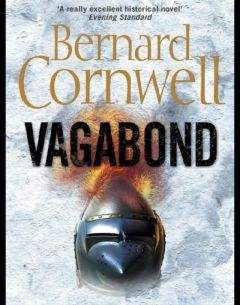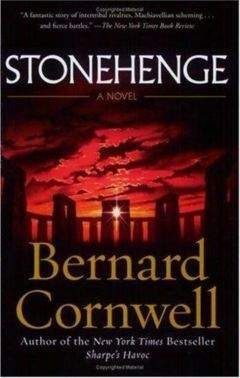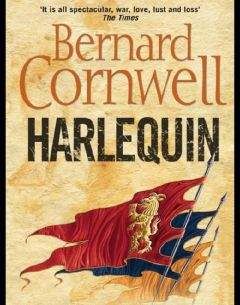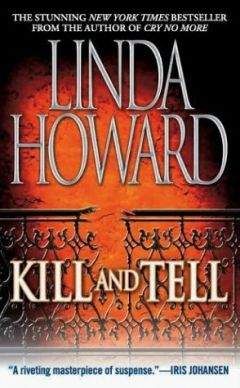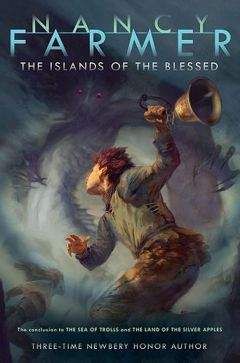Ознакомительная версия.
The trebuchet named Hellgiver shot first. A lever was pulled that extracted a thick metal pin from a staple attached to the long arm of Hellgiver's beam. Ten tons of lead dropped with a crash that could be heard in Treguier, the long arm whipped up and the sling whirled at the arm's end with the sound of a sudden gale and a boulder arched into the sky. It seemed to hang for a moment, a great stone lump in the kestrel-haunted sky, and then, like a thunderbolt, it fell.
The killing had begun.
The first stone, thrown by Hellgiver, crashed through the roof of a dyer's house close to St Brieuc's church and took off the heads of an English man-at-arms and the dyer's wife. A joke went through the garrison that the two bodies were so crushed together by the boulder that they would go on coupling throughout eternity. The stone which killed them, a rock about the size of a barrel, had missed the eastern ramparts by no more than twenty feet and the Bavarian engineers made adjustments to the sling and the next stone thumped just short of the wall, spewing up filth and sewage from the ditch. The third boulder hit the wall plumb and then a monstrous thump announced that Widosvmaker had just shot its first missile and one after the other Stone-Hurler, Crusher, Gravedigger, Stonewhip, Spiteful, Destroyer and Hand of God added their contributions. Richard Totesham did his best to blunt the assault of the trebuchets. It was evident that Charles was attempting to make four breaches, one on each side of the town, and so Totesham ordered vast bags to be sewn and stuffed with straw and the bags were placed to cushion the walls, which were further protected by baulks of timber. Those precautions served to slow the process of making the breaches, but the Bavarians were sending some of their missiles deep into the town and nothing could be done to shield the houses from those plunging boulders. Some townsfolk argued that Tote-sham should construct a trebuchet of his own and try to break the enemy's machines, but he doubted there was time and instead a giant crossbow was fashioned from ships' spars that had been brought upstream from Treguier before the siege began. Treguier was now deserted for, lacking walls, its inhabitants had either come to La Roche-Derrien for shelter, fled to sea in their ships or gone over to Charles's camp.
Totesham's springald was thirty feet in width and shot a bolt eight feet long propelled by a cord made from braided leather. It was cocked by means of a ship's windlass. It took four davs to make the weapon and the very first time they tried to use it the spar-arm broke. It was a had omen, and there was an even worse one next morning when a horse drawing a cart of night soil broke free from its harness and kicked a child in the head. The child died. Later that day a stone from one of the smaller trebuchets across the river plunged into Richard Totesham's house and brought down half the upper floor and very nearly killed his baby. Over a score of mercenaries tried to desert the garrison that night and some must have got clean away, others joined Charles's army and one, who had been carrying a message for Sir Thomas Dagworth concealed in a boot, was caught and beheaded. Next morning his severed head, with the letter fixed between his teeth, was hurled into the town by the trebuchet called the Hand of God and the spirits of the garrison plummeted even further.
'I am not sure,' Mordecai told Thomas, `whether omens can be trusted.'
'Of course they can.'
'I should like to hear your reasons. But show me your urine first.'
'You said I was cured,' Thomas protested.
'Eternal vigilance, dear Thomas, is the price of health. Piss for me.'
Thomas obeyed, Mordecai held the liquid up to the sun, then dipped a finger in it and dabbed it onto his tongue. 'Splendid!' he said. 'Clear, pure and not too saline. That is a good omen, is it not?'
'That's a symptom,' Thomas said, 'not an omen.'
'Ah.' Mordecai smiled at the correction. They were in the small back yard behind Jeanette's kitchen where the doctor watched the house-martins bringing mud to their new nests beneath the eaves. 'Enlighten me, Thomas,' he said with another smile, 'on the matter of omens.'
'When our Lord was crucified,' Thomas said, 'there was darkness in daytime and a curtain in the temple was torn in two.'
'You are saying that omens are secreted at the very heart of your faith?'
'And yours too, surely?' Thomas asked.
Mordecai flinched as a boulder crunched down some-where in the town. The sound reverberated, then there was another splintering crash as a weakened roof or floor gave way. Dogs howled and a woman screamed. 'They're doing it deliberately,' Mordecai said.
'Of course,' Thomas said. Not only was the enemy sending boulders to fall on the tight small houses of the town, but they sometimes used the trebuchets to lob the rotting corpses of cattle or pigs or goats to splatter their filth and stench through the streets. Mordecai waited till the woman had stopped scream-ing. 'I don't think I believe in omens,' he said. 'We suffer some bad luck in the town and everyone assumes we are doomed, but how do we know there is not some ill fortune afflicting the enemy?'
Thomas said nothing. Birds squabbled in the thatch, oblivious that a cat was stalking just below the roof ridge.
'What do you want, Thomas?' Mordecai asked. 'Want?'
'What do you want?'
Thomas grimaced and held out his right hand with its crooked fingers. 'For these to be straight.'
'And I want to be young again,' Mordecai said impatiently. 'Your fingers are mended. They are misshapen, but mended. Now tell me what you want.'
'What I want,' Thomas said, 'is to kill the men who killed Eleanor. To bring Jeanette's son back. Then to be an archer. Just that. An archer.' He wanted the Grail too. but he did not like to talk of that with Mordecai.
Mordecai tugged at his beard. 'To kill the men who killed Eleanor?' he mused aloud. 'I think you'll do that. Jeanette's son? Maybe you will do that too, though I don't understand why you wish to please her. You don't want to marry Jeanette, do you?'
'Marry her!' Thomas laughed. 'No.'
'Good.'
'Good?' Thomas was offended now.
'I have always enjoyed talking with alchemists,' Mordecai said, 'and I have often seen them mix sulphur and quicksilver. There is a theory that all metals are composed of those two substances, did you know? The proportions vary, of course, but my point, dear Thomas, is that if you put quicksilver and sulphur into a vessel, then heat it, the result is very often calamitous.' He mimed an explosion with his hands. 'That, I think, is you and Jeanette. Besides, I cannot see her married to an archer. To a king? Yes. To a duke? Maybe. To a count or an earl? Certainly. But to an archer?' He shook his head. 'There is nothing wrong with being an archer, Thomas. It's a useful skill in this wicked world.' He sat silent for a few heartbeats. 'My son is training to be a doctor.'
Thomas smiled. 'I sense a reproof.'
'A reproof?'
'Your son will be a healer and I'm a killer.'
Mordecai shook his head. 'Benjamin is training to be a physician, but he would rather be a soldier. He wants to be a killer.'
'Then why—' Thomas stopped because the answer was obvious.
'Jews cannot carry weapons,' Mordecai said, 'that is why. No, I meant no reproof. I think, as soldiers go, Thomas, that you are a good man.' He paused and frowned because another stone from one of the bigger trebuchets had slammed into a building not far away and, as the echoing crash subsided, he waited for the screams. None came. 'Your friend Will is a good man, too,' Mordecai went on, 'but I fear he's no longer an archer.'
Thomas nodded. Will Skeat was cured, but not restored. 'It would have been better, I sometimes think—' Thomas began.
'If he had died?' Mordecai finished the thought. 'Wish death on no man, Thomas, it comes soon enough with-out a wish. Sir William will go home to England, no doubt, and your Earl will look after him.'
The fate of all old soldiers, Thomas thought. To go home and die on the charity of the family they served. 'Then I'll go to the siege of Calais when all this is over,' Thomas said,
'and see if Will's archers need a new leader.'
Mordecai smiled. 'You won't look for the Grail?' 'I don't know where it is,' Thomas said.
'And your father's book?' Mordecai asked. 'It didn't help?'
Thomas had been poring over the copy Jeanette had made. He thought his father must have used some kind of code, though try as he might he could not pierce the code's workings. Or else, in its ramblings, the book was merely a symptom of Father Ralph's troubled mind. Yet Thomas was sure of one thing. His father had believed he possessed the Grail. 'I will look for the Grail,' Thomas said, 'but I sometimes think the only way to seek it is not to search for it.' He looked up, startled, as there was a sudden scrabbling sound on the roof. The cat had made a rush and almost lost its footing as birds scattered upwards.
'Another omen?' Mordecai suggested, looking up at the escaping birds. 'Surely a good one?'
'Besides,' Thomas said, 'what do you know of the Grail?'
'I am a Jew. What do I know of anything?' Mordecai asked innocently. 'What would happen, Thomas, if you found the Grail?' He did not wait for an answer. 'Do you think,'
he went on instead, 'that the world will become a better place? Is it just lacking the Grail? Is that all?' There was still no answer. 'It's a thing like Abracadabra, is that it?' Mordecai said sadly.
'The devil?' Thomas was shocked.
'Abracadabra isn't the devil!' Mordecai answered, equally shocked. 'It's simply a charm. Some foolish Jews believe if you write it in the form of a triangle and hang it about your neck then you'll not suffer from the ague! What nonsense! The only cure for an ague is a warm poultice of cow dung, but folk will put their trust in charms and, I fear, in omens too, yet I do not think God works through the one or reveals Himself through the other.'
'Your God,' Thomas said, 'is a very long way away.
' 'I rather fear he is.'
'Mine is close,' Thomas said, 'and He does show Himself.'
'Then you're fortunate,' Mordecai said. Jeanette's distaff and spindle were on the bench beside him and he put the distaff under his left arm and tried to spin some thread from the wool bundled about its head, but he could make nothing of it. 'You are fortunate,' he said again, 'and I hope that when Charles's troops break in that your God stays close. As for the rest of us, I suppose we're doomed?'
'If they break in,' Thomas said, 'then either take refuge in a church or try and escape by the river.'
'I can't swim.'
'Then the church is your best hope.'
'I doubt that,' Mordecai said, putting down the distaff. 'What Totesham should do,' he said sadly, 'is surrender. Let us all leave.'
'He won't do that.'
Mordecai shrugged. 'So we must die.'
Yet, the very next day, he was given a chance to escape when Totesham said that anyone who did not want to suffer the privations of the siege could leave the town by the southern gate, but no sooner was it thrown open than a force of Charles's men-at-arms, all in mail and with their faces hidden by their helmets' grey visors, blocked the road. No more than a hundred folk had decided to go, all of them women and children, but Charles's men-at-arms were there to say they would not be allowed to abandon La Roche-Derrien. It was not in the besiegers' interest to have fewer mouths for the garrison to feed and so the grey men barred the road and Totesham's soldiers shut the town gate and the women and children were stranded all day.
That evening the trebuchets ceased their work for the first time since the stone had killed the dyer's wife and her loser and, in the strange silence, a messenger came from Charles's encampment. A trumpeter and a white flag announced that he wanted a truce and Totesham ordered an English trumpeter to respond to the Breton and for a white banner to be waved above the southern gate. The Breton messenger waited until a man of rank came to the walls, then he gestured at the women and children. 'These folk,' he said,
'cannot be allowed to pass through our lines. They will starve here.'
'This is the pity your master has for his people?' Totesham's envoy responded. He was an English priest who spoke Breton and French.
'He has such pity for them,' the messenger answered, that he would free them of England's chains. Tell your master that he has until this evening's angelus to sur-render the town, and if he does he will be permitted to march out with all his weapons, banners, horses, families, servants and possessions.'
It was a generous offer but the priest did not even consider it. 'I will tell him,' the priest said, 'but only if you tell your master that we have food for a year and weapons enough to kill all of you twice over.'
The messenger bowed, the priest returned the compliment and the parley was over. The trebuchets began their work again and, at nightfall, Totesham ordered the town gates opened and the fugitives were allowed back inside to the jeers of those who had not fled. Thomas, like every man in La Roche-Derrien, served time on the ramparts. It was tedious work for Charles of Blois took great care to ensure that none of his forces strayed within bowshot of the English archers, but there was some diversion to be had in watching the great trebuchets. They were cranked down so slowly that it seemed the vast beams were hardly moving, but gradually, almost imperceptibly, the big wooden box with its lead weights would rise from behind the protective palisade and the long arm would sink out of sight. Then, when the long arm was winched as low as it could go, nothing would happen for a long time, presumably because the engineers were loading the sling and then, just when it seemed nothing ever would happen, the counterweight would drop, the palisade would quiver, startled birds flash up from the grass and the long arm would slash up, judder, the sling would whip about and a stone arc into the air. The sound would come then. the monstrous crash of the falling counterweight, fol-lowed a heartbeat later by the thump of the stone onto the broken ramparts. More straw-filled bags would be thrown onto the growing breach, but the missiles still did their damage and so Totesham ordered his men to begin making new walls behind the growing breaches.
Some men, including Thomas and Robbie, wanted to make a sally. Put together sixty men, they argued, and let them stream out of the town at first light. They could easily overrun one or two of the trebuchets, soak the machines in oil and pitch and throw burning brands into the tangle of ropes and timber, but Totesham refused. His garrison was too small, he argued, and he did not want to lose even a half-dozen men before he needed to fight Charles's men in the breaches.
He lost men anyway. By the third week of the siege Charles of Blois had finished his own defensive works and the four portions of his army were all protected behind earth walls, hedges, palisades and ditches. He had scoured the land between his encampments of any obstacles so that when a relieving army came its archers would have nowhere to hide. Now, with his own encampments fortified and the trebuchets biting ever bigger holes in La Roche-Derrien's walls, he sent his crossbowmen forward to harass the ramparts. They came in pairs, one man with the crossbow and his partner holding a pavise, a shield so tall, wide and stoutly made that it could protect both men. The pavises were painted, some with holy imprecations, but most with insults in French, English and, in some cases, because the crossbowmen were Genoese, Italian. Their quarrels battered the wall, whistled about the defenders' heads and smacked into the thatch of the houses beyond the walls. Sometimes the Genoese would shoot fire arrows and Totesham had six squads of men who did nothing except chase down fires in thatch and, when they were not extinguishing flames, they hauled water out of the River Jaudy and soaked the thatch roofs that were nearest the ramparts and thus most in danger from the crossbowmen. The English archers shot back, but the crossbowmen were mostly hidden behind their pavises and, when they did shoot, they exposed themselves for only a heartbeat. Some died all the same, but they were also bringing down archers on the town's walls. Jeanette often joined Thomas on the southern rampart and loosed her bolts from a crenellation by the gate. A cross-bow could be fired from a kneeling position so she did not expose much of her body to danger, while Thomas had to stand to loose an arrow. 'You shouldn't be here,' he told her every time and she would mimic his words, then stoop to rewind her bow.
Ознакомительная версия.
